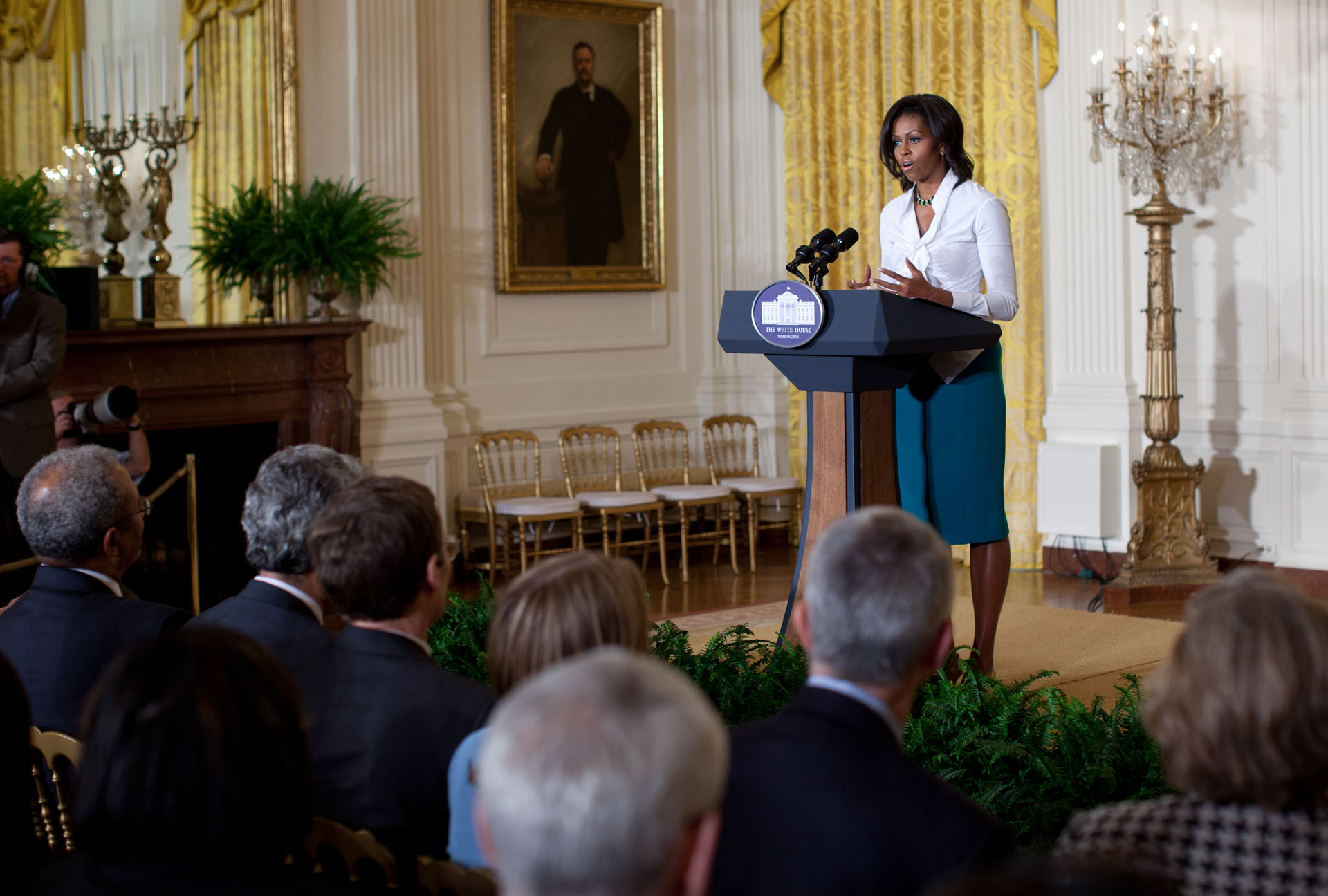
First Lady Michelle Obama today spoke about the importance of supporting and retaining women and girls who choose careers in the fields of science, technology, engineering and science, the so-called STEM disciplines.
“If we’re going to out-innovate and out-educate the rest of the world, then we have to open doors to everyone,” said Mrs. Obama during an event at the White House held to announce the NSF Career-Life Balance Initiative. “We need all hands on deck. And that means clearing hurdles for women and girls as they navigate careers in science, technology, engineering and math.”
The Initiative, a 10-year plan to provide greater work-related flexibility to women and men in research careers, is run by the National Science Foundation (NSF), which is the leading source of Federal grants for many fields that are crucial to US technology development and job creation, including computer science, mathematics, and the social sciences.
Women today currently earn 41% of PhD’s in STEM fields, but make up only 28% of tenure-track faculty in those fields. Reducing the dropout rate of women in STEM careers is especially important because women in STEM jobs earn 33 percent more than those in non-STEM occupations and the wage gap between men and women in STEM jobs is smaller than in other fields.
Mrs. Obama applauded NSF for taking these "practical, commonsense steps" that will enable women -- and men -- to balance work and family:
The folks at the NSF understand that you shouldn’t be penalized or lose a chance to advance in your career because you are taking care of a new child or a mom or dad who's gotten sick.
This is another way that my husband's administration is leading by example on issues like these. We all know that when you take steps to make life easier for working parents, it’s a win for everyone. Workplace flexibility policies can increase worker productivity. It can decrease turnover rates. It can reduce absenteeism. It can attract the best workers, and it can help those workers keep their jobs.
NSF has launched targeted workplace flexibility efforts in the past, but the new initiative is the first to be applied Foundation-wide to help postdoctoral fellows and early-career faculty members more easily care for dependents while continuing their careers. The new initiative will offer a coherent and consistent set of family-friendly policies and practices to help eliminate some of the barriers to women’s advancement and retention in STEM careers. It will:
- Allow postponement of grants for child birth/adoption– Grant recipients can defer their awards for up to one year to care for their newborn or newly adopted children.
- Allow grant suspension for parental leave– Grant recipients who wish to suspend their grants to take parental leave can extend those grants by a comparable duration at no cost.
- Provide supplements to cover research technicians– Principal investigators can apply for stipends to pay research technicians or equivalent staff to maintain labs while PIs are on family leave.
- Publicize the availability of family friendly opportunities– NSF will issue announcements and revise current program solicitations to expressly promote these opportunities to eligible awardees.
- Promote family friendliness for panel reviewers– STEM researchers who review the grant proposals of their peers will have greater opportunities to conduct virtual reviews rather than travel to a central location, increasing flexibility and reducing dependent-care needs.
- Support research and evaluation– NSF will continue to encourage the submission of proposals for research that would assess the effectiveness of policies aimed at keeping women in the STEM pipeline.
- Leverage and Expand Partnerships-- NSF will leverage existing relationships with academic institutions to encourage the extension of the tenure clock and allow for dual hiring opportunities.



